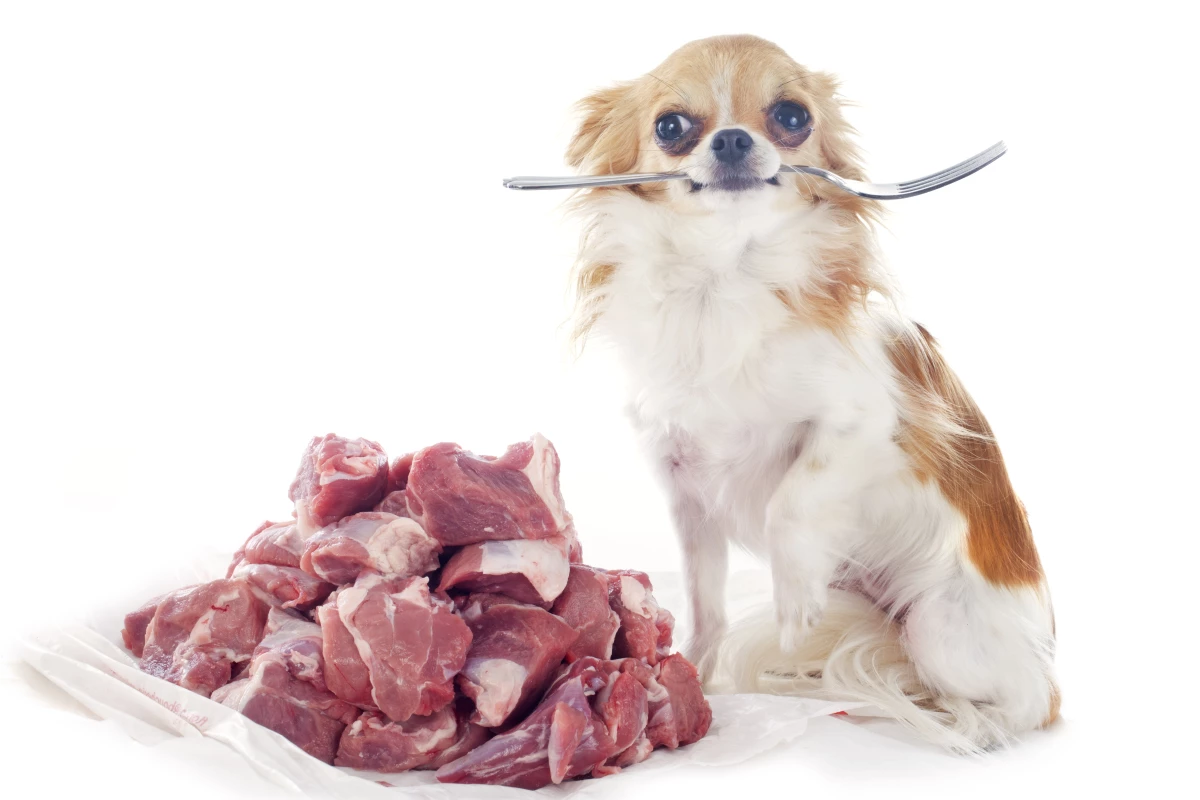A pair of new studies from researchers in the UK offer a warning to dog owners who frequently feed their pets raw meat. The research indicates pets fed raw meat diets were more likely to harbor antibiotic-resistant bacteria.
"E. coli is a widespread bacterium that is found in the intestines of all humans and animals, however, it is a common cause of many diseases including urinary tract infection and can cause serious illness including sepsis if it spreads to other parts of the body,” explained Matthew Avison, a microbiologist working on both new studies.
The first study, published earlier this year, looked at more than 200 puppies. The puppies were just 16-weeks old and the researchers confirmed a consistent association between those animals fed a raw meat diet and the presence of antibiotic-resistant E.coli in their feces.
The second, more recent study, focused on the differences between urban and rural dogs. While antibiotic-resistant E.coli was found in the feces of both types of dogs, the researchers suggest strong links with raw meat feeding were detected in the rural dogs.
The genetic strains of antibiotic-resistant E.coli detected in the rural dogs could be linked directly to what was found in nearby cattle farms. Whereas the antibiotic-resistant E.coli found in urban dogs was a little more diverse, suggesting it could come from a number of sources, including swimming in rivers.
All of this ultimately led the researchers to conclude feeding your dog a diet of raw meat can make it more likely for the animal to harbor antibiotic-resistant E.coli. Kristen Reyher, co-author on both studies, said the findings shouldn’t unnecessary scare pet owners, but instead serve as a reminder to practice good hygiene when feeding and cleaning up after their dogs.
“We know humans and animals share bacteria with one another, so what we find in your pet may well also be in you,” said Reyher. “Pet owners should be encouraged to practice good hygiene and not feeding raw food to your dog can be part of this. We can all do our part to decrease antibiotic resistance and its terrible effects on both human and animal health.”
Speaking to the Daily Mail, Avison was a little more frank in his recommendations, indicating he sees little reason why people should take risks feeding their pet raw meat. He does point out he feeds his own dogs good-quality dry food but also adds people are free to make their own choices.
“I cannot comment on any potential benefits associated with raw meat feeding but equally I have not seen any evidence that good quality processed dog food fails to provide good quality nutrition for dogs,” said Avison. “Others should be free to make their own choice but should do so in the knowledge that raw feeding comes with some potential risks.”
The new studies were published in One Health and the Journal of Antimicrobial Chemotherapy.
Source: University of Bristol




